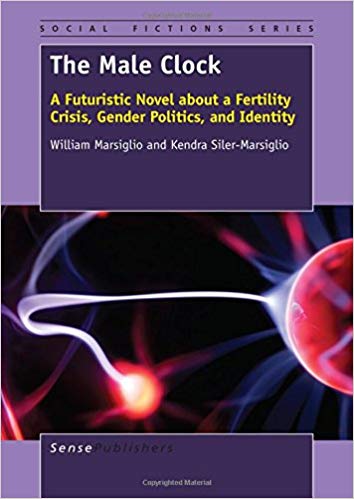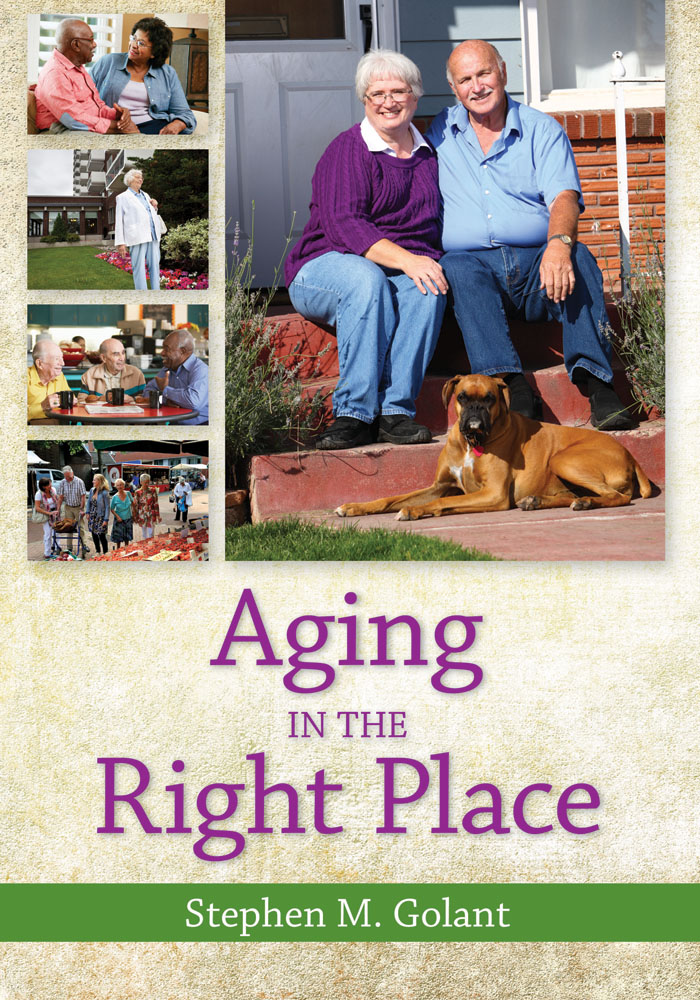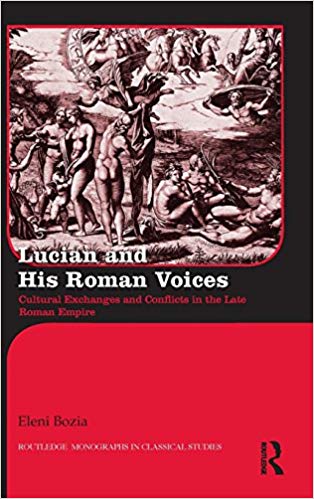
The Male Clock: A Futuristic Novel about a Fertility Crisis, Gender Politics, and Identity
edited by
William Marsiglio
William Marsiglio, Professor in Sociology and Criminology & Law. Available from Sense Publishers
As speculative fiction informed by social science and biomedical perspectives, The Male Clock propels readers into a futuristic, yet believable world transformed by SGEV – a debilitating virus that drastically compromises men’s ability to procreate. Set mostly in the years 2034-2042, Jordan Giordano, a prominent American journalist, navigates a world steeped in personal misfortune and public controversy.
Jordan chronicles his intimate struggle to become a father and family man while doing investigative reporting related to the ever changing social landscape with its radically altered sexual politics, heated public debates, and new technologies. The troubled era is defined by its upswing in baby farming, pharma company transgressions, new S.W.A.T.-based and bioterrorism technologies, sperm retrieval companies, sperm ID cards, devices preventing wet dreams, a surge in lesbian relationships and male prostitution, sperm-donating priests, and more. Because the novel explores the gendered dimensions to family, interpersonal relations, reproductive and public health, and identity issues it can serve as a provocative supplemental text for diverse courses in sociology, psychology, gender studies, sexualities, history, public health, and related fields. The plot should resonate with young people as well as persons thinking about or trying to have children. Ultimately, The Male Clock will compel people to question how individuals and groups cope with unwanted social change that challenges our identities and social conventions.
“Edgy and provocative, ves, The Male Clock is a creative blend of sci-fi and social science that takes the reader into a dystopian future where men’s fertility is threatened and societal norms of masculinities and femininities are turned on their head. Ideal for instructors looking to integrate diverse materials into their gender, sexuality, or families courses.” – Dana Berkowitz, Associate Professor, Sociology and Women’s and Gender Studies, Louisiana State University
“The Male Clock has exciting possibilities for the classroom of the 21st century: joining smart social science with speculative fiction to help students imagine a dystopian future, and hopefully also to forge positive alternative futures.” – Michael A. Messner, Professor of Sociology and Gender Studies, University of Southern California
“The Male Clock is an intriguing twist on normative gender tropes about sex and fertility. With thought-provoking insight into a host of social science topics and a fast-paced sci-fi storyline, The Male Clock is sure to be a useful tool for courses related to gender, sexuality, relationships, family, and health.” – Gayle Kaufman, Professor of Sociology and Gender and Sexuality Studies, Davidson College

Aging in the Right Place
edited by
Stephen Golant
Stephen Golant, Professor in Geography. Available from Health Professions Press.
Press Release
Article in the Washington Post
Encouraging new ways to look at the question of how to grow old successfully, Aging in the Right Place highlights the profound significance of where older people live and receive care.
This book analyzes how residential environments influence the physical and psychological well-being of older adults, often determining their quality of life and successful aging. It provides a comprehensive analysis of the complex factors that influence the present and future types of living arrangements among which seniors can choose. The author particularly focuses on the oft-neglected aspect of older adults’ emotional, subjective experiences of home – how their unique memories and associations with their homes, belongings, and closeness to friends and neighbors substantially influence their residential choice, and sometimes defy logic or practicality. The book contrasts the desire for comfort in a home environment with the mastery that comes from feeling competent and in control in the face of age-related losses due to poor health, restricted mobility, and reduced social supports. The book presents a helpful model – called residential normalcy – for evaluating how well seniors’ residential options fit their needs and preferences. The book takes a hard look at the pros and cons of the popular trend of “aging in place.” It considers the efficacy of personal (e.g., family) and community-based services in supporting elders to age in place, the practicalities of new technologies, and the impact of economics and policymaking on individual choices. It contrasts these with the continuing emergence of more customized elder care settings, including assisted living, continuing care retirement communities (CCRCs), and co-housing, as alternative living environments for frail elders.

Lucian and His Roman Voices: Cultural Exchanges and Conflicts in the Late Roman Empire (Routledge Monographs in Classical Studies)
edited by
Eleni Bozia
Eleni Bozia, Visiting Lecturer in Classics. Available from Amazon.
Lucian and His Roman Voices examines cultural exchanges, political propaganda, and religious conflicts in the Early Roman Empire through the eyes of Lucian, his contemporary Roman authors, and Christian Apologists. Offering a multi-faceted analysis of the Lucianic corpus, this book explores how Lucian, a Syrian who wrote in Greek and who became a Roman citizen, was affected by the socio-political climate of his time, reacted to it, and how he ‘corresponded’ with the Roman intelligentsia. In the process, this unique volume raises questions such as: What did the title ‘Roman citizen’ mean to native Romans and to others? How were language and literature politicized, and how did they become a means of social propaganda? This study reveals Lucian’s recondite historical and authorial personas and the ways in which his literary activity portrayed second-century reality from the perspectives of the Romans, Greeks, pagans, Christians, and citizens of the Roman Empire.